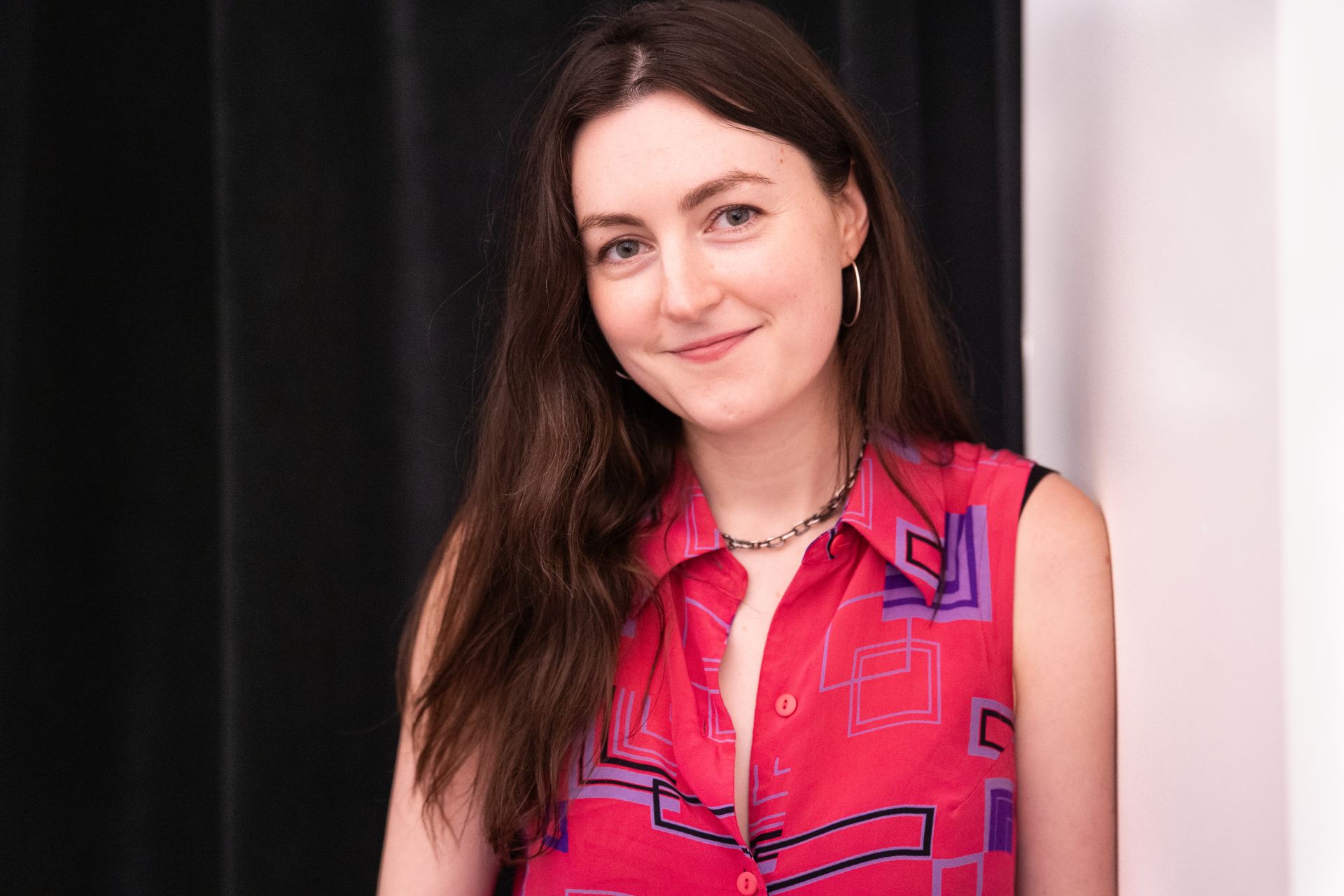“It’s about taking your ego and personal taste out of the equation and being completely open to what someone else is trying to communicate.”
Tell us a little bit about yourself. Where are you from and what do you do when you’re not reading for NER?
I mainly grew up in North Dakota before moving out east for college and graduate school. For the last three and a half years I’ve been living in New Mexico, working in a leather shop and writing plays whenever I can. Very soon I’ll be making the scary leap out of day-job world and into writing full-time. I have a strong creative community in New York City, and for the last few years I’ve been going back semi-regularly to work with my collaborators and mount shows. Right now I work across several different mediums—musical theatre writing, playwriting, and television writing. I also make work with an experimental theater collective called SOUR MILK. Our hybrid live/digital works are based on experiments in mediated liveness, digital nostalgia, and gameplay. When not working in theater, I’m probably sending emails or hiking.
What made you decide to be a reader for NER, and how long have you been on staff?
I’ve been on staff at NER for about two years. I was recommended to be a reader by the brilliant writer and mentor of mine, Dan O’Brien. It seemed like a great opportunity to connect with the greater writing community outside of theater. I also love supporting new work and promoting dramatic writing as a worthy category for literary journals and publications.
NER can only publish a very small percentage of the submissions received. Have you ever read a submission that later got selected for publication?
I have! I read Charlotte Turnbull’s performance piece “no home for a kraken” (43.4) and was immediately transfixed by her playful and lyrical way with language. If you haven’t read it yet, you definitely should!
What is your reading process like? What do you look for in a submission?
I try to give each submission the same attention and care that I would want for myself, should I be submitting. It’s such a vulnerable thing, submitting your work to be reviewed by a faceless person on the internet! That being said, I can usually tell pretty quickly when a submission is sparking for me. Obviously dramatic writing is meant to be visualized on stage or screen, so I want to see what the writer sees. Do they have an understanding of what their piece might look like onstage? Why is this piece meant for this specific medium, as opposed to a short story or poem? When the writer has a strong sense of these things, it comes across on the page.
Of the pieces you’ve read in NER, which have been most memorable to you personally?
Definitely “no home for a kraken,” which I mentioned above. I also especially love reading the poetry in the New England Review. The playwright Sarah Ruhl said, “I wanted desperately to be a poet before I discovered playwriting, but once I wrote plays, I began to think there was a kind of equation for playwrights—indifferent-to-bad poets made good playwrights.” I’ve always wished I could be a poet! But instead I content myself with marveling at the poets published in NER‘s pages. “Parable of the Sower,” which appeared in issue 45.2, is a stunning poem by my friend David Villaverde. Read it if you haven’t!
How has reading for NER influenced your own writing/creative pursuits?
It’s made me reflect on my own perspective as a writer. Who am I to be reviewing other people’s work? And I think the answer to that lies less in one’s professional recognition and more in how they move through the world. It’s about taking your ego and personal taste out of the equation and being completely open to what someone else is trying to communicate. It’s quite humbling, and it’s made me approach my own work with a humility that is actually quite generative. Who am I trying to reach or uplift? What am I trying to change? Art doesn’t exist in a vacuum, it’s constantly looking outward.
What do you read for pleasure? Is there something you’re reading at the moment that you would recommend?
I’m a big fan of nonfiction. Right now I’m reading Doppelganger by Naomi Klein. She’s an activist and journalist, and this newest book finds her examining our post-COVID world of political polarization and misinformation. I highly recommend it to anyone looking to make sense of our current dangerous political climate and how it’s been fed by social media and the internet. I also love music memoirs and oral rock histories. In the last few years I’ve read books by or about Richard Hell, Jeff Tweedy, David Bowie, and the truly iconic-to-me Meet Me in the Bathroom, about the New York rock scene in the late ’90s and early to mid 2000s. But I also love reading fiction, poetry, and plays! The best thing a writer can do is read constantly.
Our staff readers, all volunteers, play an essential role in our editorial process and in our mission to discover new voices in contemporary literature. A full list of staff readers is available on our masthead.
